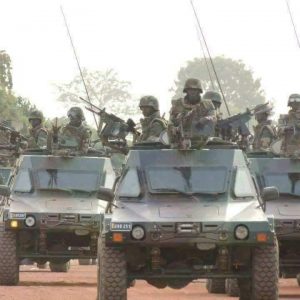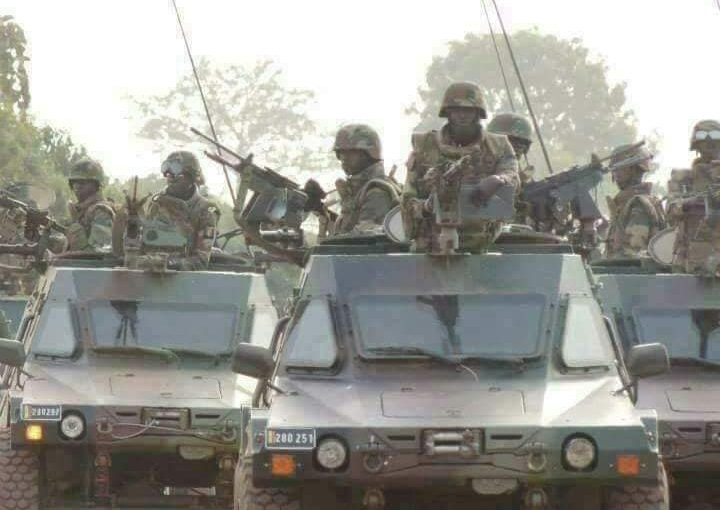 Alagi Yorro Jallow.
Alagi Yorro Jallow.Part II
Fatoumatta: Urgent police reforms are needed in the Gambia Police Force. Other Law Enforcement Agencies must be reformed and restructured in compliance with creating a culture of police integrity and public service honor and enhancing police accountability, truly ethical and professional in sound policing principles. Under a general application of the law, the Gambia Government must allow and expedite the Security Sector Reform (SSR) reform framework and process with a pursued holistic approach in supporting inclusive security sector reform.
The SSR should also be part of more comprehensive political strategies that require strong political will to break coloniality legacy and patriarchal norms and introduce inclusive security sector governance and reform activities with comprehensive reform mechanism codified under the SSR concept of peacebuilding as the link between security and development to all combined law enforcement security agencies.
The SSR processes must provide a guideline for its structure, composition, and powers that also requires a deep understanding of root causes of conflict, sustained political will, and balancing the security needs of all stakeholders, the Gambia Police Force, in their efforts to advancing peace processes and extend state authority. Security sector reform can succeed only when it is part of the more comprehensive political processes.
The Government must also take responsibility for all combined law enforcement officers, equipped and strengthening its capacity building to develop a strong sense of professionalism and impact the influence of responsibility on community policing.
An authentic promotion of local ownership of organic Security Sector Reform (SSR) would give life to the community good policing initiative. Avoiding violence between police and citizens with a view in its role to serve the citizens also adheres to a police code of ethics. SSR would refocus more energy and resources and build capacity on the region’s emerging key security drivers, especially in the Gambia’s emergent democracy.
The dynamics and the urgency of the Gambia’s SSR would protect citizens and property from crimes and secure our electoral democracy and avert election-related violence and political vandalism as well as organized crimes. There is also a need for synergized internal and external support for the Gambia’s security plans and reforms beyond normative initiatives.
Fatoumatta: The long period of autocratic and repressive governance of the previous Alliance for Patriotic Reorientation and Construction (APRC) administration has devasted an already weak structure of security and left the country with the limited capacity to professionally respond to emerging threats, shrunk the recruitment pool in terms of political affiliation, and hiring of party loyalists of Godfathers leaving out qualified individuals and groups perceived to belong to the opposition parties, thereby promoted the culture of favoritism and nepotism in highest levels of administration denying the best and brightest talents to reach the top positions. This, however, led to brain-drain, where many educated and successful citizens decided to seek greener pastures outside of the Gambian public and private employment structures.
Fatoumatta: In a democratic dispensation under civilian control, the military cannot realistically be the force that will forever keep the Gambia from breaking down and falling apart. Our peoples’ collective will and desire-across their ethnic and nationality divide, socio-economic interests, class divisions, religious groupings, and political pursuits- are the force that can keep us in peace, harmony, and development. Second, the military is unsuitable, in a democracy, to be used to put down demonstrations, protests, or civil unrest. In case of an armed and organized insurrection against the Government or an armed opposition group waging a campaign to topple the Government, the military may be activated to pacify the opposition and save the established order from collapse. However, the military must not be used to disperse peaceful demonstrators or protesters.
There is a reason for the Gambian people to be averse to “invitation “to the military to restore order. We can all recall that following the military’s use in internal security operations in the Second Republic, the military was eventually “invited” by the civilians to come to police duties. The rest is history.
The Gambia, currently, is facing a battle of survival and continuity as an indissoluble entity. This is a fact. Many may simplistically conclude that the military should and must not be resorted to keeping the Gambia intact in internal police duties these circumstances. However, the Gambian Armed Forces, which ordinarily should be preoccupied with protecting the Gambia from external threats, attacks, or sustained armed aggression or invasion. The Gambian law enforcement, been enmeshed, not only in seemingly intractable internal security operations but also in colonial structures of security and policing, without recording any swift or sweet victory, must tell us all, rulers and the ruled, that the Gambia is facing an existential crisis.
Moreover, the military cannot sustainably be the force to prevent the Gambia from further descending into the abyss of violent criminality. No matter how vast and extensive the security’s internal security operations area, rampant violent crimes across the country may not be curbed in the prevailing circumstances. Armed robbery, drug, human trafficking, and racketeering, domestic terrorism, extremism, money laundering, horrific sexual offenses, cult group violence, murders, etc., are on the rise. Many security officers and men have become victims of this pervasive violence and State of insecurity in our country. Some police stations and residences of a senior police officer and gas stations had been set ablaze and burnt.
A state of public emergency was creeping in. Under those circumstances, a decision understandably had to be made between being politically correct and doing nothing, thereby allowing the situation to degenerate, and being statesmanly and protective of lives and property and possibly incurring uninformed public censure courting disapproval of the electorates.
Furthermore, the Policemen whose stations were invaded and set ablaze, and threatened with death could have killed their assailants. This is the prescription of the law. Of course, the issue of proportionality comes into play. There must be an equilibrium between the invading force and resisting force in determining the resisting force’s reasonableness, mostly when injuries occur.
Fatoumatta: We draw attention to the justified killing of a human being in defense of life and property because, like in the United States, there is the 2nd Amendment right of the citizens to bear arms. In the Gambia, the is not such law citizens’ right to carry weapons ( guns), save cases of licensed gun carriers and local hunters using locally fabricated guns to hunt for games, is surrendered to the State. Therefore, the State possesses good reasons to exercise that right, appropriately, on behalf of the citizens when their rights to life and property are in grave danger.
There are many lessons to learn from the Faraba bantang village and in Foni protests and their aftermath. First, the police were under-equipped. They were improperly armed with guns to quell demonstrations, protests, and riots—no tear gas, water cannons, batons, truncheons, rubber bullets, etc. Once a massive crowd confronts them, they start shooting live weapons. When overwhelmed by the crowd, they bolt away.
Fatoumatta: In this dire situation, Government and governance must be reinvented, and the Gambian State must be reconfigured. The security, law enforcement, and criminal justice administration in the Gambia must be reworked. More importantly, the socio-economic and political system of the Gambia must be rearranged. Equity, justice, and fairness must be made to reign. Equal opportunities must be guaranteed to all. The business of politics must be taken seriously, while the politics as business mindset must be jettisoned. Want, poverty, misery, diseases, and illiteracy must be tackled. Moreover, corrupt practices must be genuinely fought, while those engaged in corrupt practices must be brought to justice. A better Gambia is possible in our lifetime.
Fatoumatta: Police brutality is as typical and emblematic due to its persistence in the Gambia. The persistence of police brutality is a product of an engrained historical culture of brutality. Brutality is also related to the Gambian society’s social-cultural issues, such as; hegemonic masculinity-patriarchy, persistent importance of group thinking, and persistent ethnic-based governance. Through, I learned how the colonial government policies benefited by abusing the police to brutalize their subjects, a pedigree of the Gambia’s current governments. The post-colonial governments in the Gambia use the structures’ advantages, using the police officers in containing their political opponents. Irrespective of the various police reforms, the police modus operandi remains brutality with perpetrators facing no justice. The culture of impunity is central concerning police brutality. How police act and conduct themselves during the elections periods is due to impunity. The protagonists of the brutality, including those who kill, rarely face justice or face inadequate justice. Therefore, I state that there is an abuse of police by those in leadership. This is the reason why there is persistent police brutality and mostly during the election periods. It underscores the view that using police to brutalize those who oppose their leadership means retaining their leadership position.
Fatoumatta: Ethno-politically, police brutality is a contextually accepted manipulative and abusive way of winning an election and retaining power. The catalyst to police brutality is that discords among the citizens and communities have been politically pitted against each other, which undermines the unified national voice against police brutality. Elections are viewed as the ultimate prize for political supremacy. The abuse of Law Enforcement by those in leadership is decisively meant to make them win the prize, which comes with resource control. The way forward suggested a from below and above approaches in addressing police bestiality and police brutality cases. This is where both the local citizens and national elites, and international agencies can participate in Security Sector Reforms (SSR). It is also an engagement of both legal and social-cultural perspectives towards policing.

